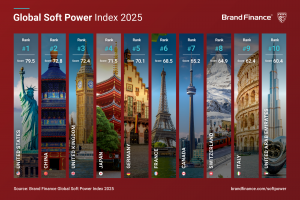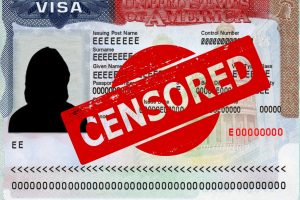The tensions accelerated by France in East Mediterranean Sea appear to have given more reasons to Turkey to brace up for its nuclear program.
Turkey has long been critical of unjust global norms of one-sided nuclear programs, mostly possessed by the developed West and her allies.
Ankara has refused to accept such an environment where nations “scare others because of their nukes”.
Dr. Ali Bakeer, Ankara-based political analyst and consultant, suggested that the French interference in tensions between Turkey and Greece over drilling has empowered Ankara to go nuclear.
“The French show of power in E. Med – East Mediterranean Sea — (sending nuclear-powered charles de gaulle) only strengthens the rhetoric of Turks who want their country to develop serious deterrent capabilities including the possibility of having nuclear power in the future,” said Bakeer, an ace political observer covering Middle East and Turkey.
Bakeer was referring to deployment of the flagship of French Navy — the nuclear-powered surface vessel, aircraft carrier Charles de Gaulle — to the Eastern Mediterranean Sea to support Greece against Turkey.
Turkey and Greece are engaged in a one-sided duel in the Sea for natural resources as Athens is making unjustified and unrealistic claims over maritime borders.
Ankara has resisted any usurping of her rights in the resource-rich Sea where its at least three seismic ships are drilling for possible natural gas and oil.
Paris has lent its support to Athens and has sent warships, and jets to “counter Turkey”. Not surprising, UAE has also expressed its support to Athens.
Mohammad Pervez Bilgrami, who regularly writes on Turkey’s foreign policy issues, supported Bakeer’s stand on possible nukes program of Turkey.
“Chances are that Turkey will be forced to develop & possess its own nuclear weapons in response to threats from 290 nuclear warheads of France,” Bilgrami tweeted over the weekend.
Last year in September, Turkey’s President Recep Tayyip Erdogan in an address to ruling Justice and Development (AK) Party explained the “unnatural law” over possessing the nukes.
“Some countries have missiles with nuclear warheads, not one or two. But (they tell us) we can’t have them. This, I cannot accept,” Erdogan said at the party convention in the eastern city of Sivas.
“We have Israel nearby, as almost neighbors. They scare (other nations) by possessing these. No one can touch them,” Erdogan added.
According to the latest study by Stockholm International Peace Research Institute (SIPRI), Israel possesses 80 to 90 nuclear warheads while France has nearly 300 nuclear heads.
The SIPRI added Israel continues to pursue a policy of ambiguity regarding its nuclear program.
Growing calls for “nuclear Turkey” also come at a time when few Arab countries with patronage of Israel and US have turned hostile to Turkey in view of the so-called normalization deal between Abu Dhabi and Tel Aviv.
According to US-based Center for Global Policy (CGP), “Abu Dhabi knows that the US strategy for the Middle East increasingly relies on regional players [read Turkey] to take the lead, and this is driving Emirati behavior.”
This behavior of Abu Dhabi which has jumped in to the lap of nuclear-armed Israel strengthens Ankara’s demand for developing nukes.
However, the CGP adds: “the UAE-Israel deal is a relatively insignificant part of a much wider geopolitical puzzle. It has to do with Emirates’ efforts to assume charge of Arab diplomacy… UAE’s actions complicate the US strategy to counter Iran and manage Turkey’s growing footprint in the region.”
Turkey’s nuclear ambition is not easy though.
The French Institute for International and Strategic Affairs (IRIS) in a report says in such case a that Ankara pursues the nuclear goal, “Turkey would have to leave many international treaties that has signed such as nuclear non-proliferation treaty (NPT) and might bow to further sanctions like Iran.”
Turkey ratified the NPT in 1979.
In an interview to Straturka.com from Pakistan capital Islamabad, war veteran and security analyst Zaid Hamid said a defense pact between Turkey and Pakistan was needed “for the survival of both countries.”
“Zionists of the East and the West are a threat to both the nations. Turkey has the technology and a historic legacy; Pakistan has the nuclear arms,” said Hamid. “A defense pact can protect both the countries.”
Pakistan is the only Muslim country with nuclear arms since 1998. And Turkey’s defense sector has reached $14 billion worth with seven of its companies figuring in top 100 defense companies in the world.
Hamid, however, acknowledged Turkey and Pakistan have “much more and strategic and growing relations in defense sector”.
Earlier in June 2018, Erdogan told a a live question-and-answer social media broadcast that his government has plans to send Turkish students to China, Japan and France for “nuclear studies”.
Erdogan was discussing Turkey’s first nuclear power plant (NPP) – Akkuyu — being built by Russia in the country’s southern province of Mersin.
He said Turkey will not stop at Akkuyu, and “will go on to build a second nuclear power plant in the Black Sea province of Sinop”.
The NPP – not to be misconstrued with nuclear arms — is a thermal power station in which the heat source is a nuclear reactor. The heat is used to generate steam that drives a steam turbine connected to a generator that produces electricity.
The Turkish president added the country will likely build its third NPP with China. “We are also in talks for a third nuclear power plant. […] Because we need clean, credible energy,” he added.
A look at Turkey’s ambition of nuclear arms shows that Ankara already signed the NPT in 1979, and has also signed the 1996 Comprehensive Nuclear-Test-Ban Treaty, which bans all nuclear detonations for any purpose.
However, claims have been made that Turkey expressed its intention way back in 1960s to have nuclear program.
According to the New York Times, Turkey began operating a few small research reactors in 1979, and since 1986, it has made reactor fuel at a pilot plant in Istanbul.
“They’re building up their nuclear expertise,” said Olli Heinonen, the former chief inspector for the International Atomic Energy Agency (IAEA). “It’s high quality stuff.”
Besides, being a strong NATO ally, there are at least 50 American tactical nuclear weapons deployed at Turkey’s Incirlik air base.
Ankara joined the biggest military alliance in 1952.
It was in 1955, that Turkey joined the Atoms for Peace Program and was its first nuclear interactions, six years ahead of the Cuban missile crisis of 1961.
During the Cuban missile crisis, US deployed its American Jupiter Ballistic Missiles in Izmir. And later, Turkey integrated into a new nuclear sharing system of NATO alongside four other countries: Belgium, Germany, the Netherlands and Italy.
“This system of nuclear sharing, which was constructed during (the) early cold war, was conceived to prevent further independent proliferation among the western allies. Following these events, Turkey ratified the NPT in 1979 and has had a safeguards agreement in force with the IAEA since 1981,” said the report by the IRIS.
Although the IRIS report says Turkey has “no intentions to pursue such program in a near future, as it is included in NATO’s burden-sharing principle” but it adds: “(the) changing regional context upon Israeli relations, Iran’s failed JCPOA and purchase of S-400 missiles shape President Erdogan’s statements as well. In this perspective, while Erdogan’s claims seem mostly unrealistic, it might be a signal for a change in the country’s future.”
Hamid, who is the Afghan war veteran, explained that in the post-COVID-19 world is a “place of chaos, wars and global destructions”.
“You need strong allies, brothers and friends in these very dangerous times. Turks are the only nation Pakistanis would trust blindly and offer everything we have. This bond of trust and faith must be translated into a rock-solid defensive wall.”
Heinonen, the former IAEA chief inspector, said in 2019, “Ankara might come to the threshold of the bomb option in four or five years, or sooner, with substantial foreign help.”






